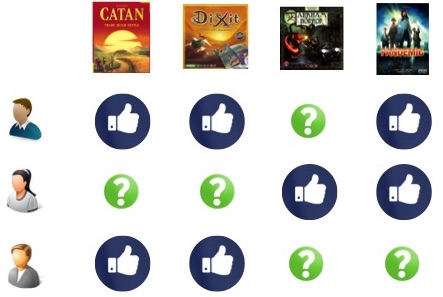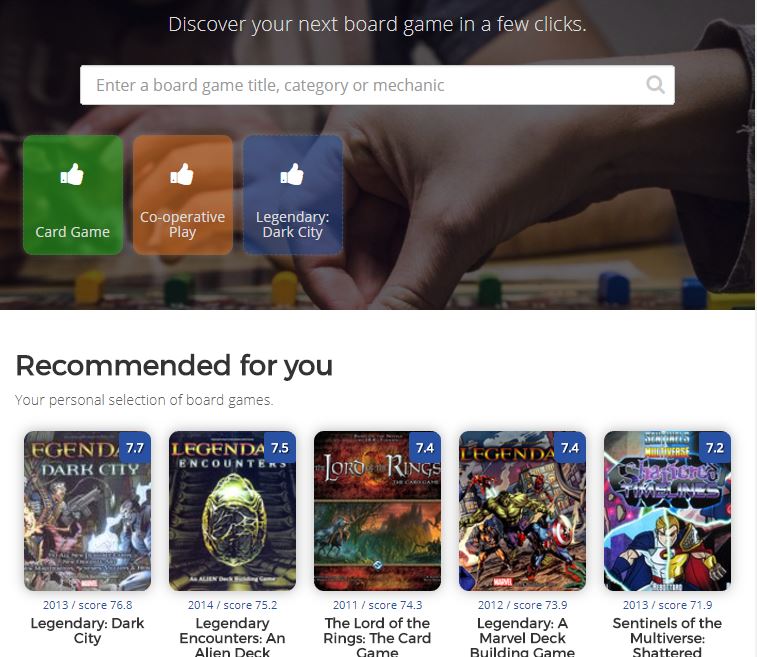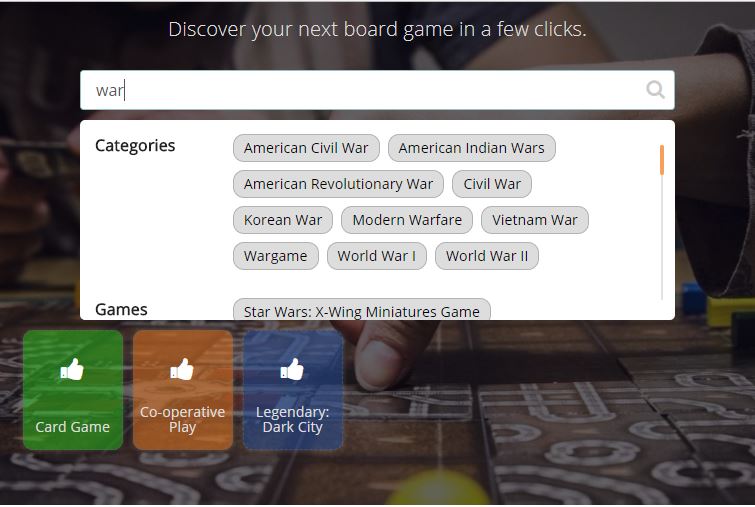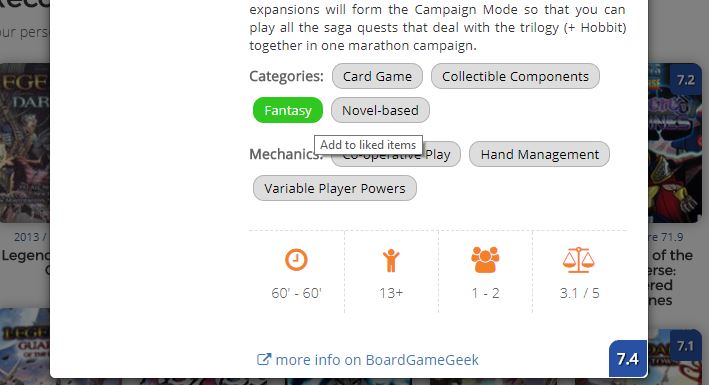You will love them all.
Published by
Lorem ipsum dolor sit amet, consectetur adipiscing elit, sed eiusmod tempor incidunt ut labore et dolore magna aliqua. Ut enim ad minim veniam, quis nostrud exercitation ullamco laboris nisi ut aliquid ex ea commodi consequat.
It's magic
Nowadays, recommendation systems are widely used in many different applications, such as movie providers, advertisements, or social networks. The main idea of recommendation systems is to provide personalized recommendations in an automated way. That is, the recommendations must be adapted to the specific interests or needs of each user, and they must be provided by a computer program, with no human supervision.
If you are already familiar with recommendation systems and machine learning, you can safely skip the remainder of this text and check out our paper for the technical details. Otherwise, continue reading for a high-level overview.To provide the boardgame recommendations, we focus on collaborative filtering. In collaborative filtering, we have a set of items (boardgames) that have been rated by users. The main idea of collaborative filtering is to infer the preferences of each user based not only on the ratings provided by that user, but also on the ratings of all other users in the system. These preferences are then used to form the actual predictions. Thus, collaborative filtering makes use of the ratings of all users to make predictions about a given user. In other words, it recommends items that other users with preferences similar to yours rated positively. This is why it is called collaborative.
We show below an example of a user/item matrix of ratings. Some of the games have been rated by some of the users, but there are many items that have not been rated; these are indicated with a question mark. If we are able to predict the missing entries, then we can recommend the items that the user is more likely to rate positively.

Here is where the machine learning approach comes into play. We make use of a statistical method to learn features from the observed ratings, and then we use these features to make predictions about the missing entries.
Our approach makes use of a matrix factorization approach combined with exponential family embeddings. Our ArXiv paper will be available soon. Stay tuned!
We downloaded the data from boardgamegeek. We are thankful to the administrators for providing an API to obtain the data.
It's easy
Tell us what types of board games you like and we recommend games that you will love.

You can select the categories, mechanics, or games from the search engine...

or add it from the game info panel.

enjoy it!